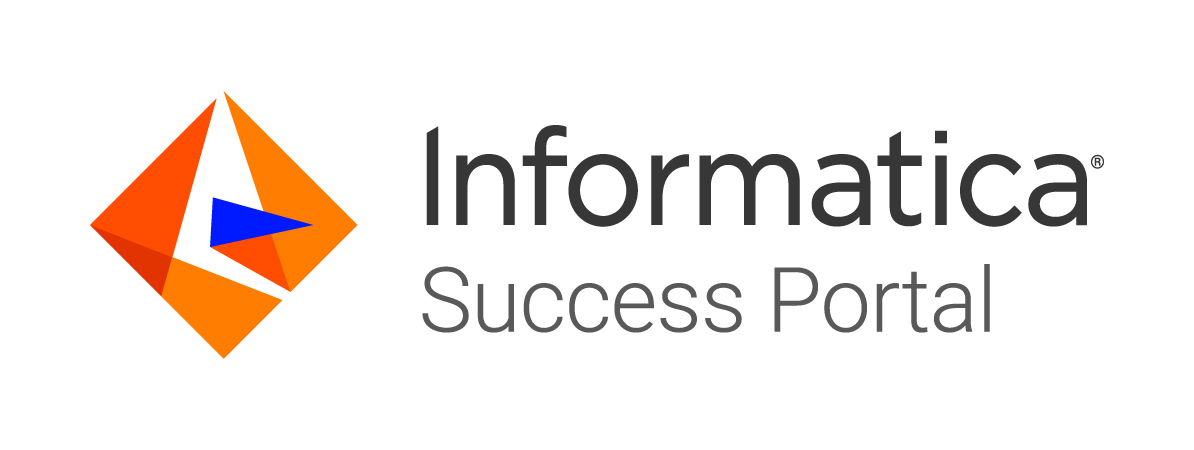-
Success
Manage your Success Plans and Engagements, gain key insights into your implementation journey, and collaborate with your CSMsSuccessAccelerate your Purchase to Value engaging with Informatica Architects for Customer SuccessAll your Engagements at one place
-
Communities
A collaborative platform to connect and grow with like-minded Informaticans across the globeCommunitiesConnect and collaborate with Informatica experts and championsHave a question? Start a Discussion and get immediate answers you are looking forCustomer-organized groups that meet online and in-person. Join today to network, share ideas, and get tips on how to get the most out of Informatica
-
Knowledge Center
Troubleshooting documents, product guides, how to videos, best practices, and moreKnowledge CenterOne-stop self-service portal for solutions, FAQs, Whitepapers, How Tos, Videos, and moreVideo channel for step-by-step instructions to use our products, best practices, troubleshooting tips, and much moreInformation library of the latest product documentsBest practices and use cases from the Implementation team
-
Learn
Rich resources to help you leverage full capabilities of our productsLearnRole-based training programs for the best ROIGet certified on Informatica products. Free, Foundation, or ProfessionalFree and unlimited modules based on your expertise level and journeySelf-guided, intuitive experience platform for outcome-focused product capabilities and use cases
-
Resources
Library of content to help you leverage the best of Informatica productsResourcesMost popular webinars on product architecture, best practices, and moreProduct Availability Matrix statements of Informatica productsMonthly support newsletterInformatica Support Guide and Statements, Quick Start Guides, and Cloud Product Description ScheduleEnd of Life statements of Informatica products
- Velocity
- Strategy
-
Solutions
-
Stages
Following a rigorous methodology is key to delivering customer satisfaction and expanding analytics use cases across the business.

-
More
-
Success
Manage your Success Plans and Engagements, gain key insights into your implementation journey, and collaborate with your CSMsAccelerate your Purchase to Value engaging with Informatica Architects for Customer SuccessAll your Engagements at one place
-
Communities
A collaborative platform to connect and grow with like-minded Informaticans across the globeConnect and collaborate with Informatica experts and championsHave a question? Start a Discussion and get immediate answers you are looking forCustomer-organized groups that meet online and in-person. Join today to network, share ideas, and get tips on how to get the most out of Informatica
-
Knowledge Center
Troubleshooting documents, product guides, how to videos, best practices, and moreOne-stop self-service portal for solutions, FAQs, Whitepapers, How Tos, Videos, and moreVideo channel for step-by-step instructions to use our products, best practices, troubleshooting tips, and much moreInformation library of the latest product documentsBest practices and use cases from the Implementation team
-
Learn
Rich resources to help you leverage full capabilities of our productsRole-based training programs for the best ROIGet certified on Informatica products. Free, Foundation, or ProfessionalFree and unlimited modules based on your expertise level and journeySelf-guided, intuitive experience platform for outcome-focused product capabilities and use cases
-
Resources
Library of content to help you leverage the best of Informatica productsMost popular webinars on product architecture, best practices, and moreProduct Availability Matrix statements of Informatica productsMonthly support newsletterInformatica Support Guide and Statements, Quick Start Guides, and Cloud Product Description ScheduleEnd of Life statements of Informatica products
-
Success
Technical Architect
Cloud Data Warehouse & Data Lake
Technical Architect is responsible for the conceptualization, design and implementation of a sound technical architecture that includes both hardware and software components. The Architect interacts with Project Management and design teams early in the development effort in order to understand the scope of the business problem and its solution. The Technical Architect must always consider both current (stated) requirements and future (often unstated) directions. Having this perspective helps to ensure that the technical architecture can expand to correspond with the growth (function, scale, etc.) of the solution. This is particularly critical given the highly iterative nature of solution development.
Responsibilities
- Develop Technical Specifications- Translates complex business requirements into Technical Specifications for a highly scalable, large volume enterprise product or solution.
- Drive Strategic Proof of Concepts- Drives high-level architectural planning and proof-of-concepts to support important enterprise initiatives.
- Perform Capacity Planning- Provides inputs to Enterprise Architecture regarding the data volumes, sizing metrics and concurrent end-user activity estimates to compute a capacity plan.
- Develop Standards & Best Practices- Establishes standards and best practices for application implementation, tools, and technologies.
- Assist Development Teams- Reviews resource estimates for development projects, performs design reviews and assesses contingency/disaster recovery plans.
- Assures Architectural Integrity- Enforces project/solution architectural integrity with appropriate change control, design reviews, development standards and code reviews.
- Promote Reuse- Maintains a repository of common or frequently used templates and promotes the usage of these where applicable.
- Capture Technical Metadata- Ensures standardized captures of metadata related to the integration solutions developed
- Collaborate with Internal Teams- Collaborates with Enterprise Architects, Solution Architects, Data Architects, and business counterparts to design and implement solutions.
Qualifications/Certifications
- Possesses knowledge of the business for which the technical architecture is being developed.
- Has a solid understanding of all enterprise integration tools and how they relate to the other technical components of the solution.
- Has a deep understanding and experience with strategies, technologies and tools in data modeling, profiling, quality management, performance, and delivery.
- Understands industry standard data integration architectures.
- Has software development expertise (previous development experience of the application type).
- Has a deep understanding of all of the technical components of the application solution and ability to develop clear technical design specifications documents.
- Has knowledge of IT governance and operations.
- Understands corporate IT security policies.
- Understands applicable data governance policies.
- Possesses strong business analysis and problem-solving skills.
- Has interpersonal and leadership skills including collaboration, facilitation, and negotiation.
- Exhibits good communication skills, both written and spoken.
- Has experience and/or training in appropriate platforms for the project.
